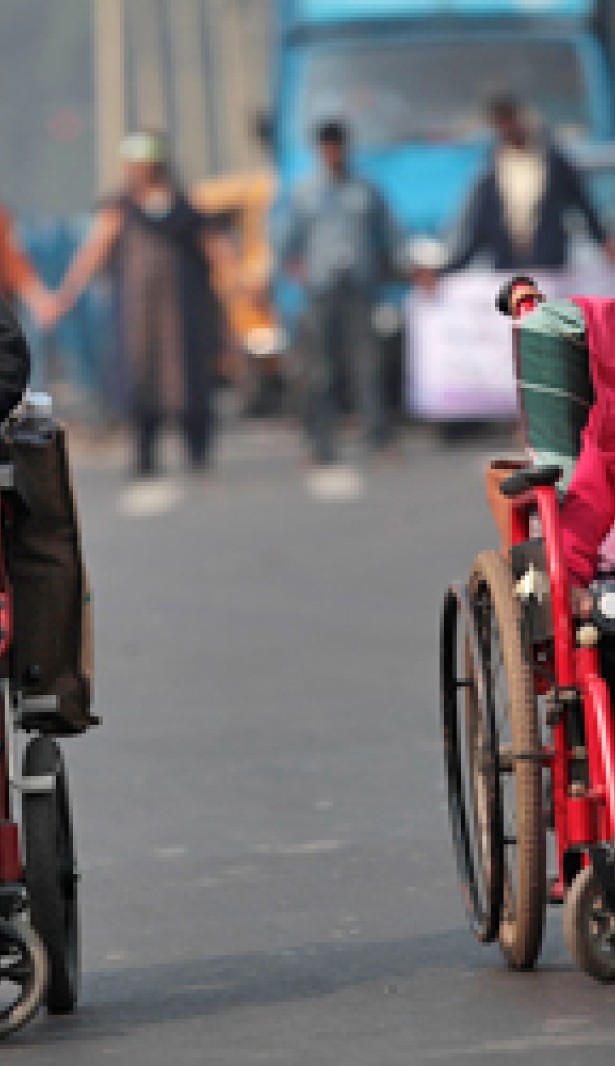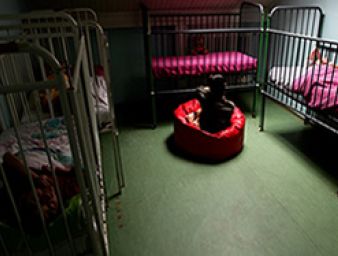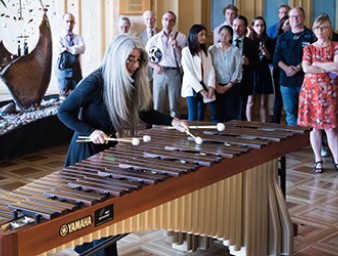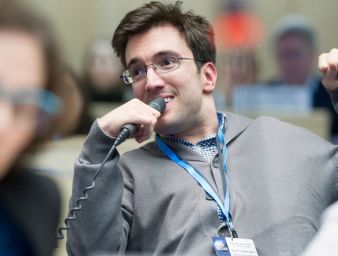A world for all
06 December 2017
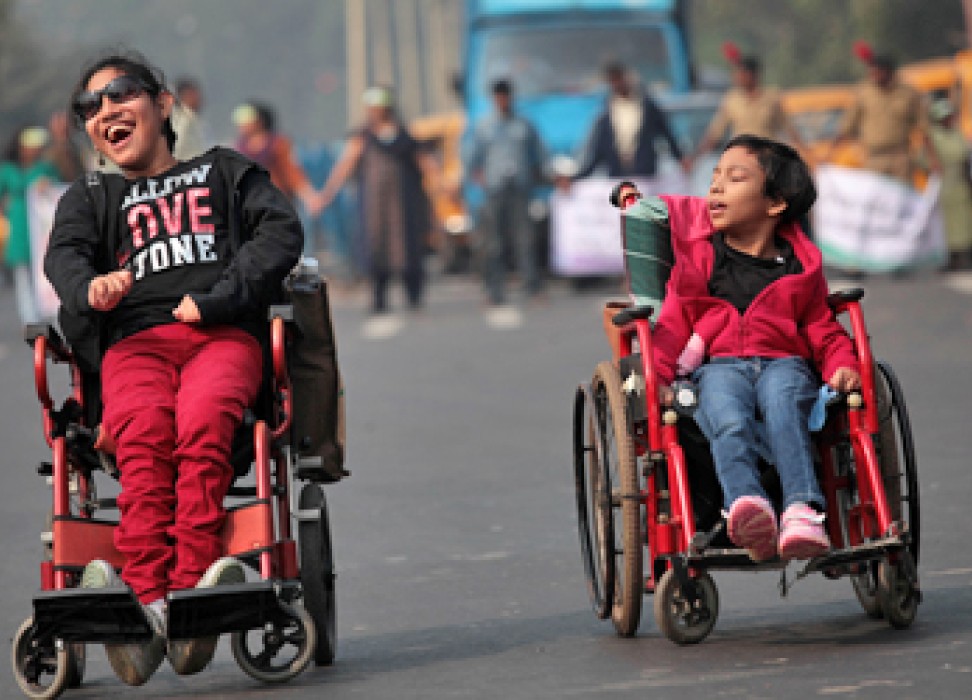
When Brightfield Shadi found himself no longer able to participate in competitive running because of an injury, he decided to start coaching others athletes who, like him, had an intellectual disability.
At the young age of 18, Shadi represented his country, Botswana, in the 2011 World Summer Games of the Special Olympics in Athens and took home the Silver for the 100-metre race. The injury that crushed his dreams made him realise that there were very limited facilities and trained personnel for injured athletes in his country.
“My injury was one of the issues that made me consider first aid very seriously. I also started teaching other people about first aid so we could prevent injuries and continue with our careers,” he said.
Shadi’s volunteer work in first aid soon changed the perceptions about people with intellectual disabilities in his community. Shadi even inspired his cousin to go into first aid volunteering.
“He’s a volunteer at the Red Cross now. He is trying to reach out to other Special Olympics athletes and others with disabilities to tell them to join him and train for first aid,” Shadi said.
“Attitudes are slowly changing in Botswana but during most of the games we don’t have as many spectators as in the mainstream. But if we continue to show the world, even to people with disability that they can do whatever they want to do, we will get more support.”
Shadi was in Geneva in his capacity as International Global Messenger representing Africa. Global messengers are athletes with intellectual disabilities who act as spokespeople and advocates for the Special Olympics and their countries. He spoke at the UN celebration of the International Day of Persons with Disability, “A Day for All”, where he participated in a panel discussion that focused on the inclusion of people with disabilities by engaging the broader and global community.
Facundo Chavez Penillas, the advisor on the rights of persons with disabilities at the UN Human Rights Office, said at the event that it was an interesting time for the Office.
“Ten years ago I started to come to the UN for different reasons: I was working for civil society claiming our rights, and our position at that time was to be activists; our goal was to open doors,” Chavez Penillas said, referring to his engagement prior to joining the UN Human Rights Office.
“The doors that were closed are now open. For us, 3 December is meant to mark a time when we achieve things as people with disabilities, and it is also a time for celebration. We are very proud of being people with disabilities and we are very proud of taking this space in the UN and changing our environment.”
Chavez Penillas pointed out that the UN Human Rights Office recently adopted an internal policy on dignity at work, which includes diversity and should soon include a policy on reasonable accommodation in the workplace for people with disabilities.
The UN Special Rapporteur on the rights of persons with disabilities, Catalina Devandas, added that although the doors were now open, people with disabilities had yet to benefit equally. Devandas also said that engagement with the rest of the community in a deeper reflection was needed to take the final steps for the meaningful transformation that would allow for the full participation of people with disabilities.
“The UN system still lacks a complete understanding of what the rights of persons with disabilities mean,” she said. “A major challenge is how to increase the capacity of the UN system and the diplomats to indeed promote the implementation of the Convention [on the Rights of Persons with Disabilities] in every single area.”
The Rapporteur pointed out that another major challenge for the UN system was ensuring the organization’s accountability for its role in implementing the Convention. Similarly to the UN’s action plan for gender equality, Devandas hoped for the creation of a set of principles that would guide all the activities of the UN, not only those that pertain to disabilities.
“Only with the true commitment of new countries that want to initiate efforts to recognize the specific forms of discrimination that persons with disabilities are facing, only through the leadership of the [UN] agencies, civil society and the diplomatic community will we have persons with disabilities included like everyone else,” Devandas said.
“And then we will be able to say: “This is not a Day for All, this is not A Year for All, this is A World for All.”
6 December 2017
